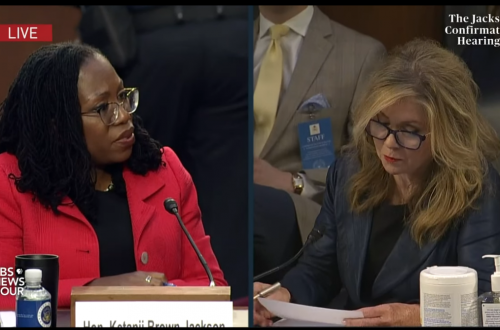There’s an ad campaign rolling out in Chicago that is designed to discourage teen pregnancy (see above). The ads feature enhanced images of teenage boys with pregnant bellies. Somehow this is supposed to make teens think twice about…what exactly? Most teens have heard of Photoshop and have at least a rudimentary understanding of the fact that boys can’t get pregnant. So what is the logic behind this ad campaign? Does anyone believe that these ads are going to thwart the flood of teenage hormones?




18 Comments
Tom Parker
Denny:
What is your solution for this problem?
Paul Reed
Throughout history, teenage pregnancies were thought of as normal. It’s only recently that people extend adolescence into their mid-20s, early-30s, and beyond. We have guys in our culture waiting until they’re 28 to get married, and people are shocked, *shocked*, mind you, that they aren’t still virgins.
buddyglass
For what it’s worth, historically speaking, it was the women who were more prone to marry early, not the men.
Ian Shaw
Is the pro-birth control crowd so at a loss that they resort to middle-school photoshop tactics to get their point across? Your message isn’t going to ever change the data because when you say the teenage pregnancy is bad, but teenage sex is ok, you’re still telling teenagers that the cause is still acceptable. You are even promoting teenage sexual intercourse, as you are only labeling the pregnancy with the negative connotation, not the intercourse itself.
Teenage boys know they can’t get pregnant. All this ad does is attempt reductio ad absurdam towards its own argument. Unless your attempt was to make teenage boys ponder “look how awful that makes me look/look how difficult that would be, so I better use birth control while I have teenage sexual intercourse,…there’s no real thought behind this ad.
If you want to truly reduce teenage pregnancy, you need to reduce/remove the frequency of the behavior that causes it, no? Unless your logic is on par with thinking that you’re ok putting regular gasoline in a supercharged muscle car thinking that the knocking will stop after a while….
Lauren Bertrand
They’re provocative, plain and simple. That’s all they need to be.
The fact that they’ve made the waves across a variety of blogs (Christian and otherwise) over the past two weeks suggests that they have been effective.
If you actually watch the entire segment, it indicates that these ads were first introduced in Milwaukee a few years ago, and they actually saw a noticeable drop in the teen pregnancy rate.
And while it might not take the “abstinence only” approach that social conservatives would prefer (but has yet to show any evidence of lower teen pregnancy rates in socially conservative parts of the country), it does at least recommend to “use a condom. Or wait.”
Akash Charles
they are only effective if pregnancies actually fall and not because people discuss their lunacy!!
Brett Cody
Abstinence works. There is evidence that supports this. 100% of women who do not have sex do not get pregnant or an STD. What doesn’t work is the large number of teens who have sex. That is the problem, not the abstinence only philosophy.
buddyglass
“Unless your attempt was to make teenage boys ponder ‘look how awful that makes me look/look how difficult that would be, so I better use birth control while I have teenage sexual intercourse’ …”
I’d say that was exactly the goal. And, if the ad actually succeeded in its goal it might actually reduce the teen pregnancy rate. I don’t estimate the likelihood of it succeeding at that goal to be very high.
Andrew Orlovsky
I’m not really sure what this is trying to accomplish. But I think it does show how ridiculous it is to preach moral values from a secular worldview. Our society throws out the Bible as outdated and irrelevant, but still wants people to behave morally, so we’re stuck with this.
buddyglass
I’d say the folks who produced the ad want kids to behave responsibly and not morally per se. Ultimately it’s a pragmatic message. Don’t be careless and get pregnant because getting pregnant when you’re still a teenager has a good chance at screwing up your life from a financial / material standpoint.
Chris Ryan
In fact that message tends to work. The states with the highest teen pregnancy rates are Bible Belt states. Those with the lowest rates tend to be more liberal, like MA. While those kids in MA start sex ~18mos earlier than kids in, say, TX. They use protection. They use protection b/cs: 1) they know about it; and 2) believe that delaying pregnancy will help them in the job market.
Brett Cody
Excellent point!
Ian Shaw
If you remove the basis for any morals out of society, morallity becomes 100% subjective. Wasn’t it Nietsche that said (paraphrase) “moral laws don’t apply, the mind is capable to justify?”
Then again, we’re talking about a culture who thinks morals come from laws, and not the other way around.
Ian Shaw
Can’t help but agree with Akash. Lauren, how soon after the ads did they survey familes to see if teen pregnancy dropped? How long did it drop for? Is it still dropping? It’s misleading to claim the data fell, but give no parameters regarding it’s TRUE effectiveness. You can’t claim the message works if people talk about it, only if less teenage pregnancies occur. President’s talk about their policies all the time, and we discuss them publicly, but it doesn’t mean they’re effective.
Lauren Bertrand
Ian Shaw, I have no idea. You can interrogate me all you want, but I didn’t make the commercials. I can tell that your heart is opposed to this from the get-go…even if they answered all your questions with very favorable results, you’d still find more questions by which to deconstruct this.
Personally, I’d like to think that the City of Chicago didn’t invest in this PSA until it made crystal clear that it knew how well it had worked in Milwaukee, the pioneer city. But I know better than to assume that the City of Chicago makes shrewd use of taxpayer dollars.
To a certain extent you’ll have to accept that secular culture is going to devise solutions than biblical literalists will. Or, I guess, you just don’t have to accept it. Either way, as far as I know, the trends toward teenage pregnancy have been on a pretty consistent downward slope since the early 1990s.
Lauren Bertrand
I forgot a critical word: “To a certain extent you’ll have to accept that secular culture is going to devise DIFFERENT solutions than biblical literalists will.”
Ian Shaw
Lauren, you requoted the message in the clip that claimed that rates go went down in that area. The video doesn’t give the supporting evidence as to “how” effective it was. It might be effective in the short term, but as Americans, we all have short memories, and you forget that the culture pushes “whatever feels right to you” with no consequences.
If they answered my questions and had favorable results for at minimum 5years, then I’d say it’s starting to work. Sorry, I’m too analytical of a person to hear a claim of something working with no data and believe it to be true.
Teenage pregnancy may be going down (don’t know your source), but in many areas of the country, it’s not. There’s also been a significant increase of single mothers in the country as well, but we don’t like to talk about that, right?
Lauren Betrand
Ian, here’s my source for the teenage mother data. It’s a pretty reliable one I think–at least not one with a serious left-wing or right-wing agenda:
http://www.cdc.gov/features/dsteenpregnancy/
I suspect you’re right about the growing presence of single moms. This trend, coupled with a declining trend in teen pregnancies, would suggest that more women are having children alone as adults (20s and 30s), which at least holds some promise of more wherewithal to care for them. Or they’re getting divorced and then not remarrying. Though I’m sure plenty of these single moms are below the poverty line as well. We also have a growing presence of single dads, and I don’t know about poverty data for them.
I’ll admit that I belong to that “subjective morality” camp that you excoriate. It’s not that I love moral relativism–it’s just that I see it as far more in keeping with the reality at hand, and denying reality by turning back the clock has proven fruitless. I wish there were a way around it, but we have to seek new solutions when a generation is largely immune to the phrase “it’s what the Bible teaches”, including many who are religious but simply aren’t Christian. It’s cold comfort to Biblical literalists that most evidence shows a marked decrease in religiosity in this country, despite the fact that it is still by far the most religious developed country in the world. I can’t help but think that some of this does come with increased educational attainment, including the general encouragement (regardless of political persuasion) to engage in higher levels of thinking such as analysis, synthesis, and evaluation. This inculcation is inevitably going to result in younger generations that are not satisfied with the answer, “that’s just the way it is.” We see evidence of this in the overwhelming rejection of a moral absolute when it comes to homosexuality–a rejection I have clearly indicated I fully support. But how do we cherry pick which moral codes are au courant? And if we refuse to compromise by saying “you can’t cherry pick”, how do we deal with the fact that our standards are increasingly rejected by mainstream America for being obsolete, or even hypocritcal?
I guess I see compromise is the only solution, unless you’re content with “throwing the baby out with the bathwater”. I’ve always admired the approach in Uganda, which uses “ABC” for sexuality: first (A)bstinence, second (B)e faithful if abstinence isn’t going to happen, and finally use a (C)ondom. Most results show Uganda has a lower teen pregnancy and (perhaps most importantly) a lower HIV infection rate than neighboring countries, thanks to this multi-tiered Public Service Announcement.